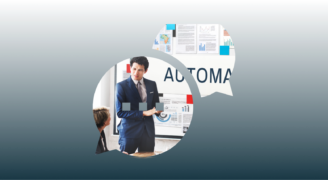While traveling people are often looking for an experience or a memory to cherish. Therefore customer retention in the tourism industry equates to customer satisfaction. They want a seamless experience and ERP systems to enable you to deliver that and more without any hassle.
Why Tourism Industry need ERP?
The tourism industry is more interconnected today than ever, travel agents are lined up with countless tasks and often struggle to manage time. The need for a single ecosystem that can manage all back-end operations and relieve tourism staff from their exhausting schedule is a necessity in this fast-paced world.
ERP is often called an all-rounder software because of its ability to integrate various functions and act as a single source of truth. It can provide the user with a quick snapshot of transactions, budgeting, customer relationship, and facilitate communication with suppliers, vendors, and other third party agents seamlessly.
Let us cut to the chase and understand how a cloud-based ERP system is capable of transforming your travel organization.
Managing Leads
The tourism business involves handling endless inquiries. An ERP management system can easily streamline all inquiries and follow-up processes effectively. Also, the entire customer lifecycle can be tracked, so that gaps in the system can be understood and fixed promptly.
Finances
By automating repeated processes like generating invoices, receipts, profit and loss statements, and more through an ERP system, tourism companies can unload complex financial functions from the shoulders of travel agents and make them focus more on customer satisfaction.
Third-party Management
Managing third-party agents is not an easy process. A dedicated system that can handle all the suppliers and vendors is necessary. Role-based access helps in streamlining information across departments and external entities - meaning, once information gets updated anywhere in the system, all the related entities are automatically updated. This further improves communication between multiple channels and results in enhanced ROI.
Reporting
Most tourism companies already have an MIS ( management information system) in place. But what they often lack is a centralized dynamic system that can auto-generate key reports for the company. Tour reports, Staff performance reports, Fixed Asset Management reports, account reports, and various other reports are routine in the industry. Therefore the need for a common database that can print custom reports will be a huge add-on while making key business decisions.
Itinerary
Building an itinerary is key to customer satisfaction. Many ERP software are capable of building itineraries in a standardized form, so travel agents can have a ready-to-go itinerary section without drilling down on minute details.
Quotations
Customized quotations enable travel agents to make quick real-time decisions. The ability to choose from multiple quotation formats will help the agents make faster and wiser decisions and that will best suit the customer.
Managing Human Resources
Assigning roles and responsibilities is an integral part of any service-oriented business. Managing leaves, compensation, and performance of the employees is hectic without an efficient ERP system.
Omni-channel Promotion
Marketing is inevitable in this field and tourism companies often roll out discounts and offer to users. But it is important to note if all these promotional activities are reaching the right audience and are making an impact. Several ERPs allow omnichannel promotion features, i.e through emails, Whatsapp, and other social media.
ERP Checklist for Travel Companies
Here are a few pointers that tourism companies should look for before buying any travel ERP software.
1. Automation
There is no room for error in the world of business, and it is important to look for ERP systems that can ensure that. Repetitive complex tasks can be easily automated to reduce errors and improve productivity.
2. Accessibility
User-friendly interfaces are next in the priority line. This is because various ERP software is complex and it takes months and years to fully understand the capability of the software. Employees should get a quick snapshot of their process without going through piles of data. Hence look for an ERP software that any average joe can operate.
3. Data Security
Chances are your systems consume a lot of data and they need a security system that will fortify all your data. While shopping for a cheap ERP system, do not compromise on data security.
4. Scalability
The true cloud experience is all about scaling according to your needs and thus having a tight rein on your budget. Many small-medium tourism businesses walk past ERP systems because of budget issues. But cloud democratizes ERP systems to all ranges of businesses.
NetSuite for Tourism Companies
ill now we talked all about the benefits and features of generic ERP software. Here we will talk about Oracle NetSuite - a global cloud-based ERP solutions provider that has advanced features and that will fit right into your business.
• Customization is a key component in NetSuite. Users can design reports, dashboards, and customize pretty much everything in NetSuite. This is useful for businesses that have unique processes and want those features in the exact shape in their new ERP system and NetSuite understands this more than anyone.
• Financial Management in NetSuite is advanced with real-time visibility into various financial processes like order to cash, payables and receivables, general ledger, and more. NetSuite Oneworld also allows Multi-currency transactions and standardizes all your operations.
• Inventory Management is flawless in NetSuite with its ability to track stock levels based on volume, category, and further replenish the stock by estimating future demands. By accurately maintaining stock levels, companies can minimize wastage drastically.
• Entity Management comes with the ability to monitor local, regional, and international operations through NetSuite Oneworld. Standardize all your business processes across the globe while ensuring legal and financial compliances.
• Human Resource Management module in NetSuite offers centralized information about all your employees, their hires, promotion, and other compensation requirements. NetSuite also offers HR analytics to analyze employee performances.
• Fixed Asset Management is often necessary for travel business with large fleets of vehicles or other in-house machinery. NetSuite helps track the asset lifecycle and report the status of the asset right from the point of acquisition to retirement. Are you looking for Travel ERP software? Get a quick quote from Jobin & Jismi.



